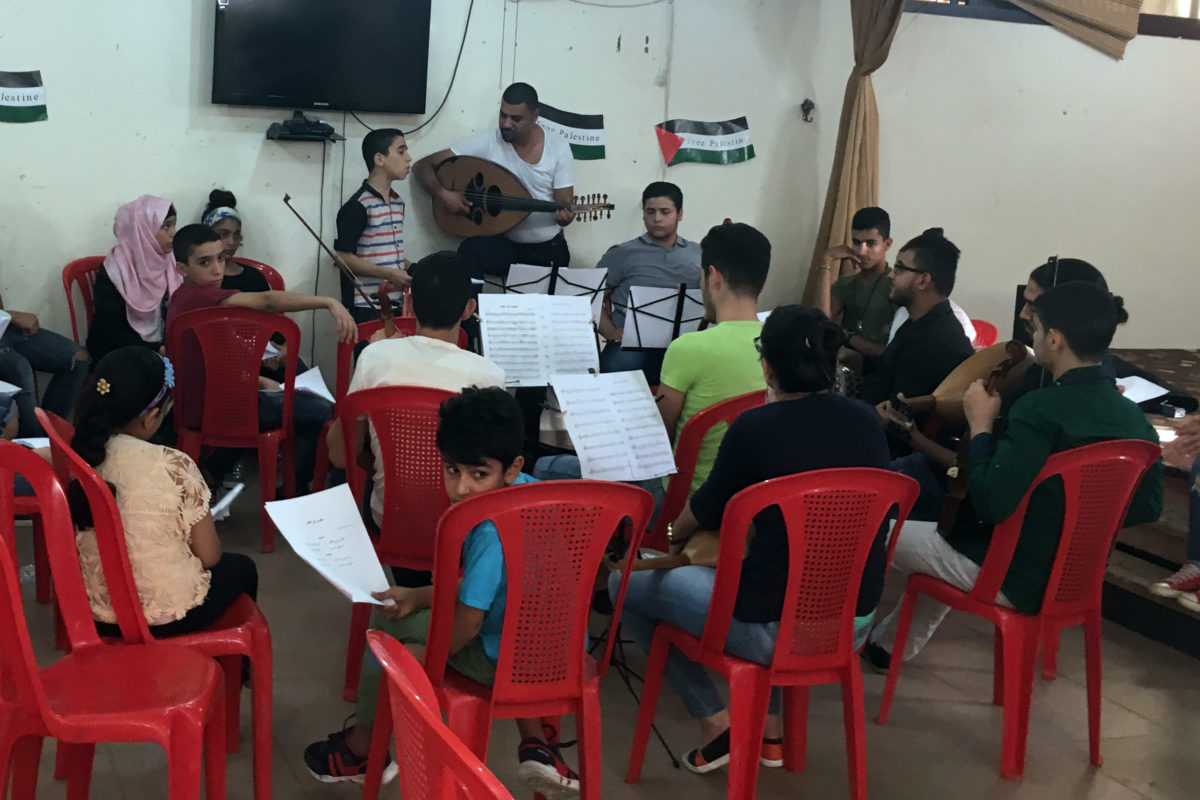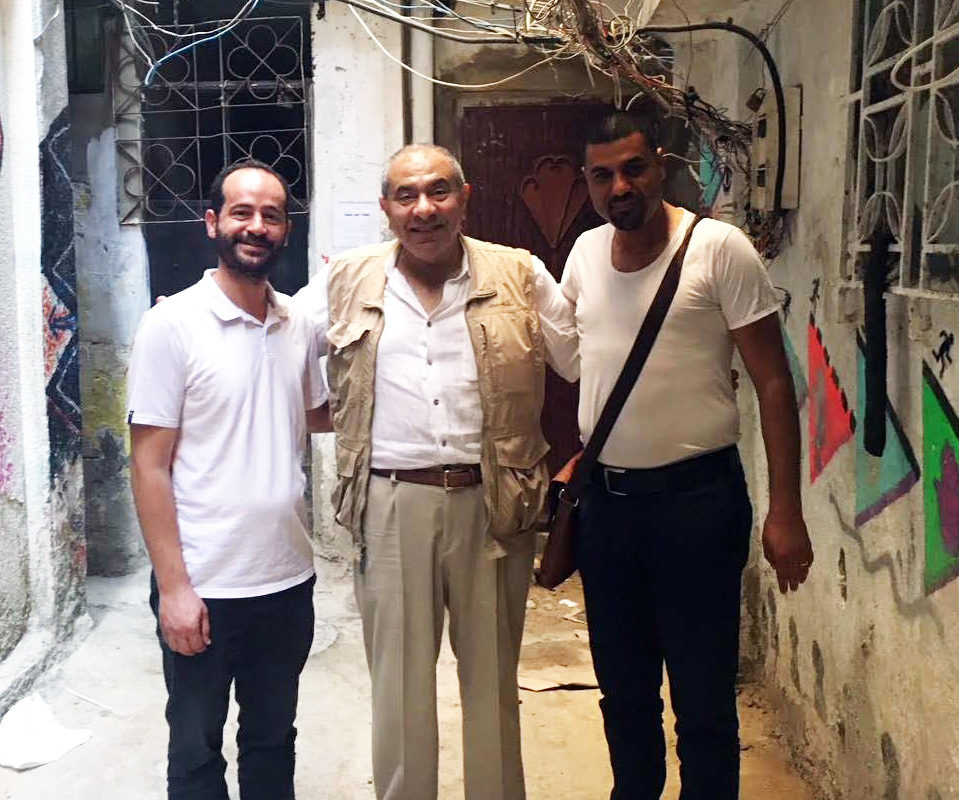Bringing Music to Refugee Camps
Reflections from the Executive Director
During my last trip to Lebanon, we walked 15 minutes away from the American University of Beirut (AUB) campus through the alleys of Shatila camp to get to the Shatila Center.
Underneath dangling electrical wires mingled with sagging plastic hoses that distribute water to residents, a typical sight in refugee camps, the alley led us to a small secluded courtyard. Whitewashed walls decorated with colorful images announced to the pedestrian traffic that they have arrived at a special place, the Shatila Center.
Over 35 years ago, these alleys once witnessed a massacre, later concluded to be a form of genocide. In only two days, the massacre of Sabra and Shatila claimed almost 3,500 lives, mostly Palestinian and some Lebanese.
A few floors above the dark alley, in a make-shift music room decorated with Palestinian flags, a music class was in session.
A group of Palestinians and their most recent guests of Syrian children tried to perfect a pitch or hit the right note. As they struggled to do so, tension built up in their facial expressions and body language.
Their instructor Iyad patiently coached, asking them to repeat a part of a song, seeking perfection. “One last try – now this is perfect,” he said. What a sense of relief and accomplishment.
Life in the camp is anything but perfect. Residents have little to no control over any aspect of their lives or destiny. In contrast, life in this music room is near perfect. It is perhaps one of the few places where children can expect to create something perfect, pure and beautiful–something to aspire to and to provide a sense of pride.
This year, in collaboration with Al Kamandjati, UPA made a three-year commitment to support summer music camps for children in Lebanon.
Above that dark alley in the make-shift music room, life is exceptionally elevated from a bleak and unpredictable reality. This is the delightful gift of music.




